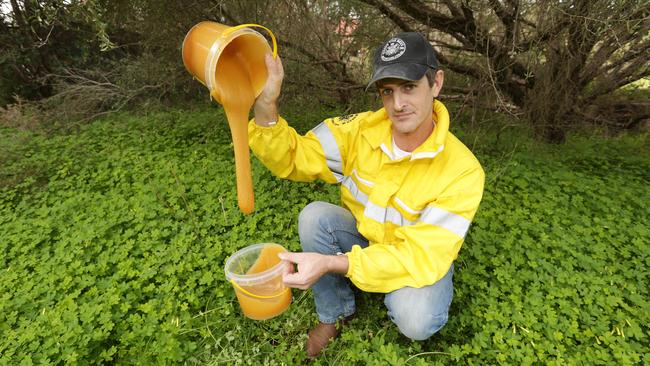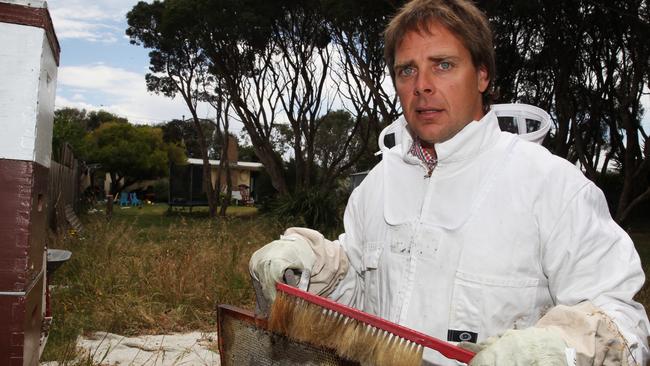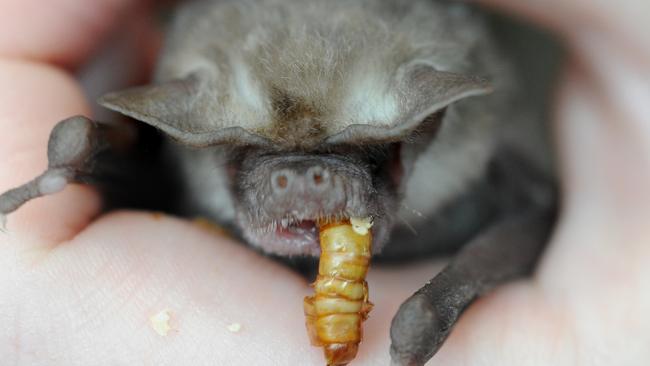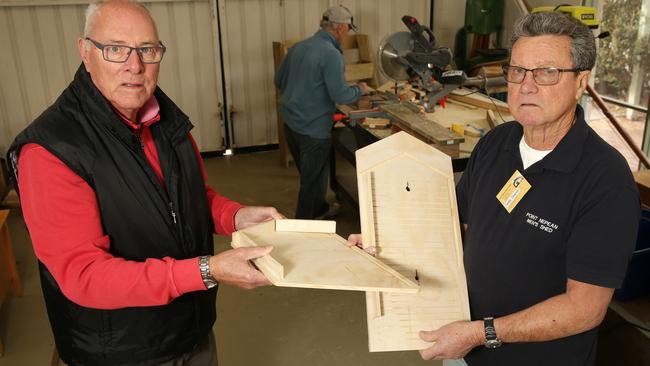Buruli ulcer: Rye bee keeper says mozzie spraying killed three colonies
An angry bee keeper has dumped 60kg of honey, fearing it was contaminated, after discovering a controversial plan to spray mozzie-killing insecticide over the Mornington Peninsula has already begun. And he believes it’s killed three of his colonies.

South East
Don't miss out on the headlines from South East . Followed categories will be added to My News.
A Mornington Peninsula bee keeper says Melbourne University’s controversial plan to blitz public areas with mozzie-killing insecticide has already begun — and may have killed three of his colonies.
The Melbourne University Doherty Institute-lead pilot is part of a wider mosquito control trial expected to start in October that involves spraying parts of the peninsula with insecticide.
The trial aims to determine if mosquitoes are linked to a spike in Buruli ulcer cases in the region.
But Will Holmes said spraying took place in his Rye neighbourhood in March and fears of chemical contamination has forced him to dump 60kg of honey.
Mr Holmes said he first heard about the March spraying of nature strips, trees, bushes and fences along French, Dawn and Goyarra streets about a week ago.
“I’m a registered bee keeper living a few streets away in Preston St. Why wasn’t I told?”
He said bees usually foraged in a 5km radius from their hives and he wasn’t comfortable selling or consuming honey that may be affected by the chemicals.
“I decided to dump it. It was worth about $2000 but it’s not worth the risk.”
He said it was likely the spraying was responsible for the mysterious death of three of his bee colonies in March.
Researchers involved in the Beating Buruli project confirmed that a small mosquito intervention trial using the insecticide bifenthrin was conducted in three Rye streets in March.
According to the statement all households were provided with information before the trial and given the option to opt out, but none did.
Save the Bees Australia founder Simon Mulvany has been campaigning against the mosquito control plan since first hearing about it last month.
He has organised a petition against the move — which now has more than 14,500 signatures — and has started a fighting fund to pay for legal experts.

He is also planning a public protest to stop the “insect massacre”.
Bifenthrin is a synthetic insecticide found in common household surface sprays used to prevent insect infestation. It is toxic to insects, spiders, mites and fish but is believed to be relatively safe to humans and other mammals.
MORE: MAN’S HARROWING BATTLE WITH FLESH-EATING ULCER
EXPERTS CALL FOR PUBLIC HELP TO TACKLE FLESH-EATING ULCER AS CASES SOAR
FLESH-EATING BUG VICTIM SHARES HORROR STORY
Meanwhile a bunch of blokes on the Mornington Peninsula have their own plan to stop the spread of the ulcer.
Members of the Point Nepean Men’s Shed at Sorrento are building nesting boxes for micro-bats, which can devour up to 1000 mosquitoes in a single night.

They came up with the idea after hearing about the plan to spray insecticide in a mosquito control trial.
Men’s Shed member Terry Phippen said Save the Bees founder Simon Mulvany spoke to the group about the effect it would have on the indigenous bees.

“Most of our members are in the heart of the control zone and concerned about the use of chemicals.”.
He said research revealed that microbats were natural predators of mosquitoes.
“There are already microbats on the Peninsula, we just need to encourage more colonies,” he said.
The nesting boxes can be hung on trees in backyards.
The Men’s Shed aims to sell the wooden boxes at markets and on their website.
